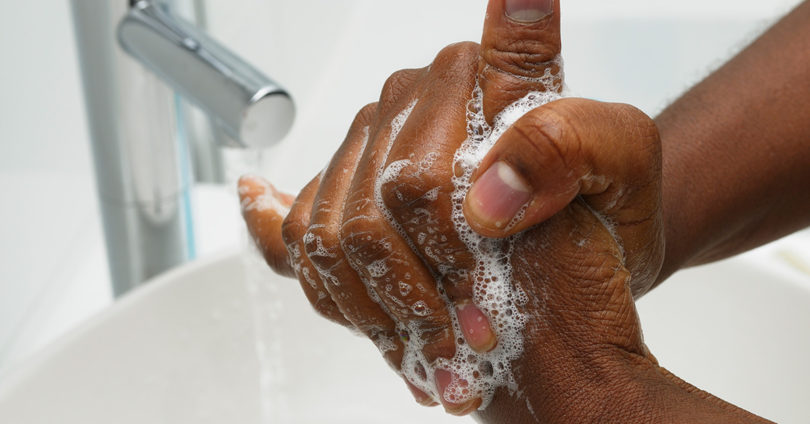Cleaning your hands and physical distancing are two of the best ways to protect yourself and others from COVID-19.
Natasha Salt, Director, Infection Prevention and Control at Sunnybrook, notes that there is a proper way to clean your hands effectively.
Follow these steps when washing your hands with soap and water:
- Wet your hands with clean, running water. Water temperature should ideally be warm as you’re more likely to spend long enough scrubbing if the water isn’t too cold or too hot.
- Lather your hands by rubbing them together with the soap. This means friction on the backs of your hands, between your fingers, on your thumbs and under your nails.
- Scrub for at least 15 seconds – that means 15 full seconds of rubbing soap on your hands (the time spent turning the taps on and off, and drying your hands, doesn’t count). One trick to make sure you’ve washed your hands for long enough is to sing ‘Twinkle, Twinkle, Little Star’ in your head (by the end of the lullaby your hands should be properly cleaned).
- Rinse your hands well under clean, running water.
- Dry your hands using a clean paper towel or towel. Using a hand dryer that blows hot air is a no-no as the action of blowing from the hand dryers stirs up bacteria from the floor, and other parts of the room.
- Use the paper towel to turn off the taps.
What if you don’t have access to running water and soap? Alcohol-based hand sanitizer kills germs and some have moisturizers in them, which can keep the skin on your hands in better condition. A word of caution though: not all 70 per cent isopropyl alcohol formulations are the same. Some are not formulated with the intention of cleaning hands, evaporating too quickly, with the result that germs remain on your hands. It’s important for the sanitizer to be formulated for hand sanitizing so it has the ability to stick to your hands and you have enough time to create 15 seconds of friction to kill germs.
In the case that you don’t have access to soap and water or alcohol-based hand sanitizers: don’t touch your face. Germs enter your body through your eyes, nose and mouth.
“There’s a reason we talk about hand hygiene all the time,” says Natasha. “Please be diligent and clean your hands frequently.”
Additional tips to help you protect yourself and others against COVID-19 and other illnesses:
- Stay home. Don’t go out unless you have to, such as to get groceries once a week.
- If you must leave home, keep two metres (six feet) away from others. This is so that respiratory droplets can’t pass between you. Learn more about physical distancing and why it’s so important.
- If you are ill, even with mild symptoms, you need to stay home. Use a grocery delivery service or ask a friend to purchase groceries for you and drop them off outside your door.
- Practice proper cough and sneeze etiquette by coughing/sneezing into a tissue, or into your sleeve or arm (and immediately washing your hands afterwards).
- Remember: don’t touch your face, especially your eyes, mouth and nose.
- Clean frequently touched objects and surfaces, like bathroom sinks, kitchen counters, etc.
For more information on Sunnybrook and COVID-19, visit sunnybrook.ca/coronavirus








